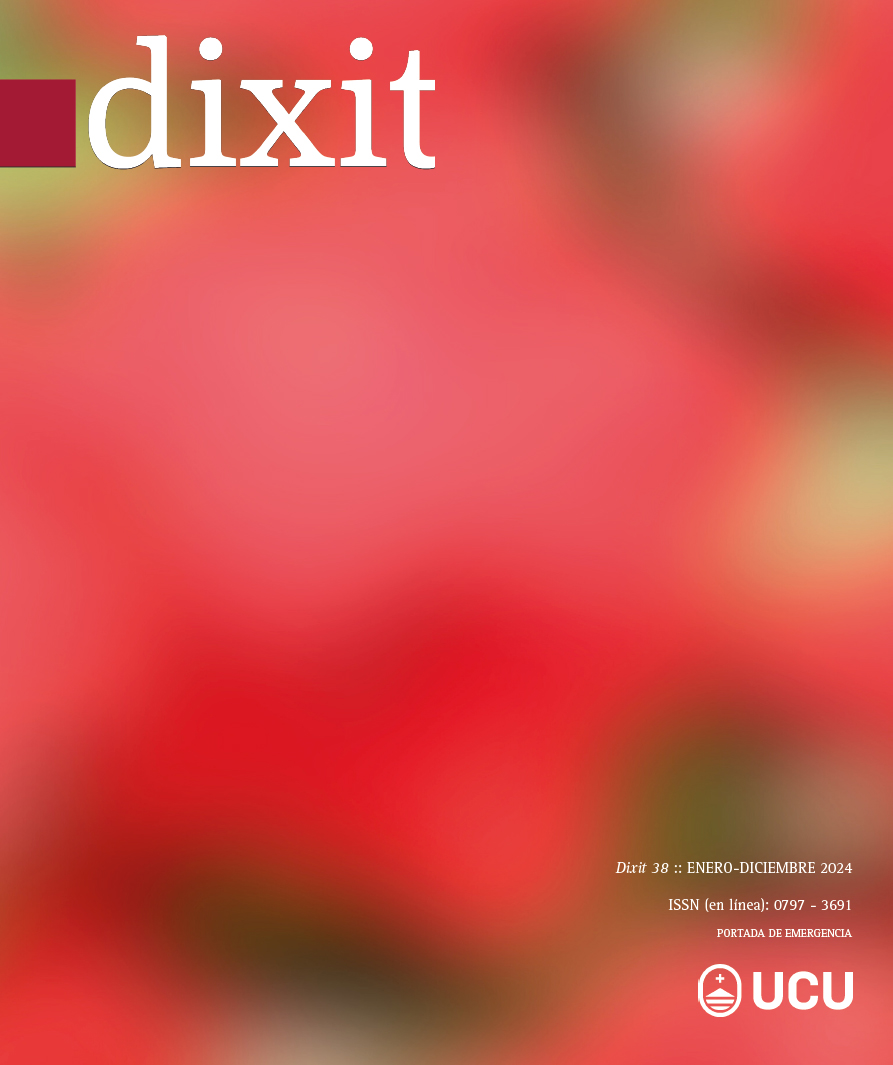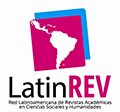Problematizing Digital Parenting: Control Practices, Sharenting, and Privacy
DOI:
https://doi.org/10.22235/d.v38.3784Keywords:
digital parenting, control, sharenting, privacyAbstract
This paper critically examines parent-child interactions within the context of a phenomenon we refer to as digital parenting: an approach that not only involves parental mediation in educational activities with devices and platforms but also takes place in digital environments. Using a grounded theory qualitative design, six focus groups were conducted with parents of adolescents aged 11 to 17. The data collected were analyzed using ATLAS.ti software. Among the findings, children's privacy emerges as a key category under dual pressure. On one hand, it conflicts with parental control, which is exercised through various strategies. On the other, it clashes with widespread practices like sharenting, which leads to a loss of personal and family privacy. This paradox is one that we aim to bring to light in this study.
Downloads
References
Albarello, F., Velasco Ossandón, A., Castro-Sánchez, M., Novoa Echaurren, Á., Novaro Hueyo, M. & Narbáis, F. (2022). Las dinámicas familiares en torno a los juegos sociales online: el caso Fortnite. Signo y Pensamiento, 40(79). https://doi.org/10.11144/Javeriana.syp40-79.dftj
Barudy, J., & Dantagnan, M. (2010). Los buenos tratos a la infancia: parentalidad, apego y resiliencia. Gedisa.
Beck, U. (2000). The cosmopolitan perspective: sociology of the second age of modernity. The British Journal of Sociology, 51(1), 79-105. https://doi.org/10.1111/j.1468-4446.2000.00079.x
Blum-Ross, A., & Livingstone, S. (2017). Sharenting: parent blogging and the boundaries of the digital self. Popular Communication, 15(2), 110-125. https://doi.org/10.1080/15405702.2016.1223300
Bronfenbrenner, U. (1987). La ecología del desarrollo humano. Experimentos en entornos naturales y diseñados. Paidós.
Burbules, N., & Callister, T. (2006). Educación: riesgos y promesas de las nuevas tecnologías de la información. Granica.
Castro Sánchez, M. (2019). Dimensiones cualitativas de la parentalidad. Teseo.
Castro-Sánchez, M. (2022). La parentalidad como interfaz social. Aportes a una teoría-diagnóstico de la parentalidad contemporánea. Hipertext.net, 25, 17-29. https://doi.org/10.31009/hipertext.net.2022.i25.03
Castro-Sánchez, M. (2023, 15 de mayo). Parentalidad positiva y desarrollo de competencias parentales. XIII Convención Nacional de Familias, Lima, Perú. https://www.gob.pe/institucion/mimp/informes-publicaciones/5593511-xiii-convencion-nacional-de-familias
Daly, M. (Ed.) (2012). La parentalidad en la Europa contemporánea: un enfoque positivo. Gobierno de España. Ministerio de Sanidad, Servicios Sociales e Igualdad.
Denzin, N. K. (1978). The Research Act: A Theoretical Introduction to Sociological Methods. McGraw-Hill.
Dweck, C. (2016). Mindset. La actitud del éxito. Sirio.
Fernández, J. L. (2021). Plataformas mediáticas. La Crujía.
Fernández, J. L. (2023). Una mecánica metodológica para el análisis de las mediatizaciones. La Crujía.
Galindo, J. (2015). Erving Goffman y el orden de la interacción. Acta Sociológica, 66, 11-34. https://doi.org/10.1016/j.acso.2014.11.002
Glaser, B., & Strauss, A. (2006). The Discovery of Grounded Theory. Strategies for Qualitative Research. Aldine Transaction (1967).
Goffman, E. (2017). La presentación de la persona en la vida cotidiana (2.ª ed.). Amorrortu. (Obra original publicada en 1956)
Hjarvard, S. (2016). Mediatización: La lógica mediática de las dinámicas cambiantes de la interacción social. La Trama de la Comunicación, 20(1), 235-252. https://doi.org/10.35305/lt.v20i1.572
Krueger, R., & Casey, M. A. (2009). Focus Groups: A Practical Guide for Applied Research. Sage.
Livingstone, S., & Blum-Ross, A. (2020). Parenting for a Digital Future. How Hopes and Fears about Technology Shape Children’s Lives. Oxford University Press.
Livingstone, S., & Helsper, E. (2008). Parental Mediation of Children’s Internet Use. Journal of Broadcasting & Electronic Media, 52(4), 581-599. https://doi.org/10.1080/08838150802437396
Livingstone, S., Bulger, M., Burton, P., Day, E., Lievens, E., Milkaite, I., & De Wolf, R. (2022). Children’s privacy and digital literacy across cultures. En L. Pangrazio & J. Sefton-Green, Learning to Live with Datafication: Educational Case Studies and Initiatives from Across the World (pp. 184-200). Routledge.
Livingstone, S., Haddon, L., Görzig, A., & Ólafsson, K. (2011). Risks and safety on the internet: the perspective of European children: summary. Deliverable D4. EU Kids Online Network.
Miller, D., Costa, E., Haynes, N., McDonald, T., Nicolescu, R., Sinanan, J., Spyer, J., Venkatraman, S., & Wang, X. (2016). How the World Changed Social Media. UCL Press.
Organización de las Naciones Unidas. (2021). Observación general núm. 25 (2021) relativa a los derechos de los niños en relación con el entorno digital. Convención sobre los Derechos del Niño. https://documents-dds-ny.un.org/doc/UNDOC/GEN/G21/053/46/PDF/G2105346.pdf?OpenElement
Pécnik, N., & Laliere, C. (2012). Por una visión de la parentalidad en el interés superior del niño. En M. Daly, La parentalidad en la Europa contemporánea: un enfoque positivo (pp. 21-45). Consejo de Europa.
Poell, T., Nieborg, D., & van Dijck, J. (2022). Plataformización. Revista Latinoamericana de Economía y Sociedad Digital. https://doi.org/10.53857/tsfe1722
Rodrigo, M. J., Martín, J. C., Cabrera, E., & Máiquez, M. L. (2009). Las competencias parentales en contextos de riesgo psicosocial. Intervención Psicosocial, 18(2), 113-120. http://www.redalyc.org/articulo.oa?id=179814021003
Sibilia, P. (2008). La intimidad como espectáculo. Fondo de Cultura Económica.
Stoilova, M., Bulger, M., & Livingstone, S. (2023). Do parental control tools fulfil family expectations for child protection? A rapid evidence review of the contexts and outcomes of use. Journal of Children and Media, 18(1), 29-49. https://doi.org/10.1080/17482798.2023.2265512
Strauss, A., & Corbin, J. (2002). Bases de la investigación cualitativa. Técnicas y procedimientos para desarrollar la teoría fundamentada. Universidad de Antioquia.
Van Dijck, J. (2016). La cultura de la conectividad. Siglo Veintiuno Editores.
Vaquero Tió, E. (2020). Parentalidad digital. Lessico pedagogico, 21(3), 203-214. https://doi.org/10.7346/SE-032020-14.
Vasilachis, I. (2014). Discurso científico, político, jurídico y de resistencia. Análisis lingüístico e investigación cualitativa. Gedisa.
Published
How to Cite
Issue
Section
License
Copyright (c) 2024 Dixit

This work is licensed under a Creative Commons Attribution 4.0 International License.
From issue number 32 onwards all contents are licensed under the Creative Commons Attribution 4.0 International License (CC BY 4.0).
Issues number 29-31 are licensed under the Creative Commons Attribution-NonCommercial 4.0 International License.
The contents corresponding to number 28 and earlier editions are under the Creative Commons Attribution-NonCommercial-ShareAlike 4.0 International License.


















